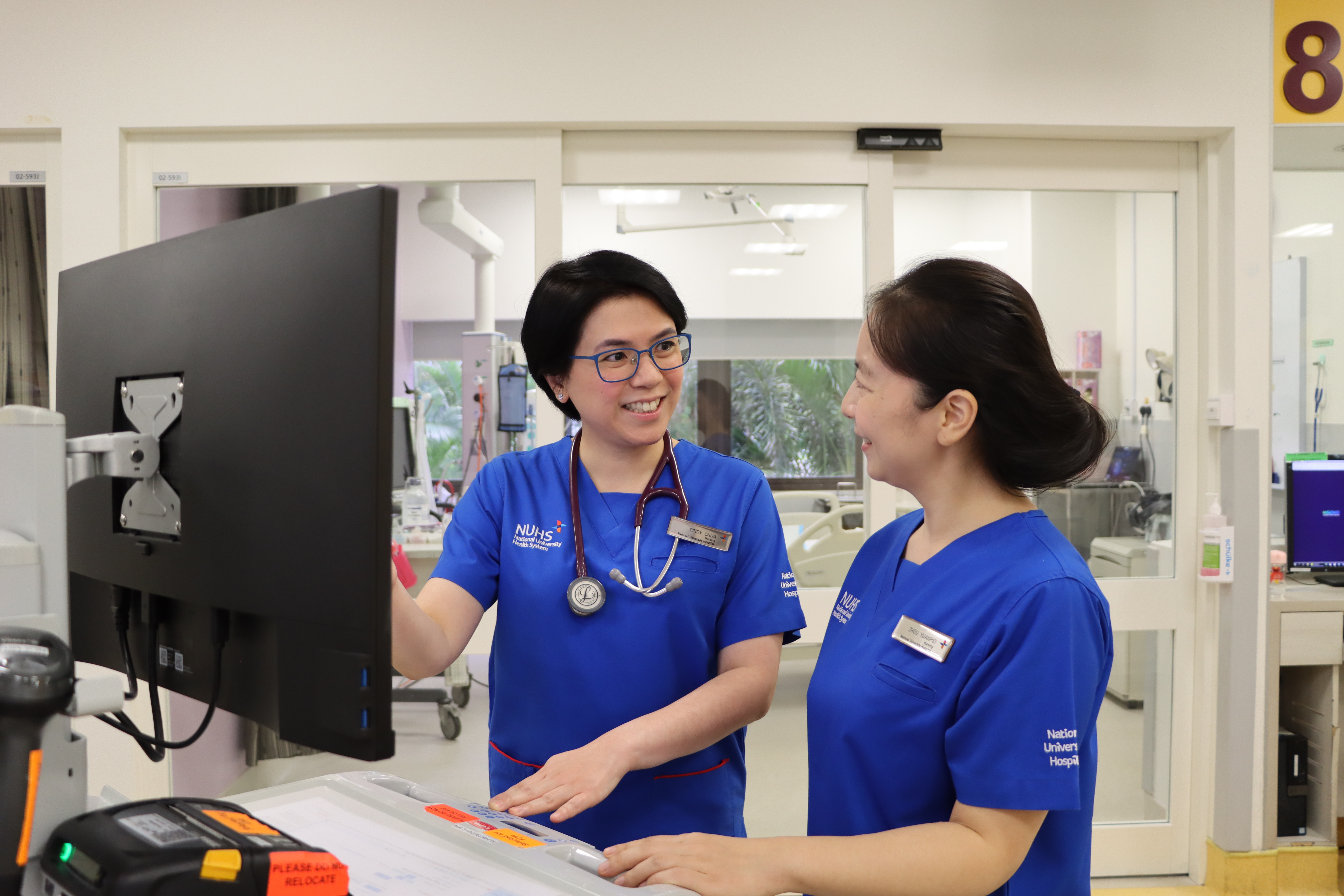The APN Journey, Shared by Cindy Chua

In 1998, I started out as a young and aspiring nurse working in the Surgical General Ward. Three years later, I pursued my Advanced Diploma in Nursing (Medical-Surgical) and was posted to the Intensive Care Unit (ICU) upon graduation. Since then, I stayed on and never looked back. I love the challenges and excitement that the ICU setting brings. I went on to attain my Bachelor’s degree at University of Sydney and Master’s degree (Advanced Practice Nurse) at the National University of Singapore (NUS). I have been a full-fledged APN since 2010.
As an acute care APN, I provide advanced nursing care to the critically ill in both the Medical and Surgical Intensive Care units as well as the High Dependency units. With the acquired advanced knowledge, skills and capabilities, I work in collaboration with clinicians Allied health, Pharmacy and various teams to provide holistic care across the continuum of health care services to meet the specialised physiologic and psychological needs of patients with acute and/or complex life-threatening conditions.
As an advocator for continual education, not only am I a co-preceptor to the Master of Nursing students at the National University of Singapore (NUS), I also coach the Advanced Practice Nurse (APN) interns through collaboration with the APN lead and other senior APNs. I actively engage the interns, support them to identify gaps between current and needed knowledge and help them prepare for their National OSCE.
Other than providing direct care and clinical supervision, I participate in hospital wide services such as the Intensive Care Liaison Programme (ICAP) where I review patients who are transferred out of ICUs to the General Wards (GWs). Together with other Assistant Nurse Clinicians (ANCs), we assess the condition of patients, make clinical acumen and ensure that the patient transit smoothly from ICU to GW. We also provide ward liaison, staff education and clinical support to GW nurses, in areas that need extra special attention.
As a Senior Nurse Clinician (SNC), I also strongly support evidence-based nursing standards for patient care at my department. I do provide clinical leadership and consultancy of my specialty to my fellow colleagues and peers, where we have steered several nurse-led initiatives in the ICUs, such as the bedside dysphagia screening, electrolytes replacement, nurse-led rounds, nursing/critical care rounds. These empower the nurses in delivering quality patient care, as well as to nurture and equip our nurses to be critical thinkers through the use of acute care clinical scenarios and inter-professional simulations.
Through the years I have been with NUH, it indeed has moulded me both professionally and personally. I hope I can inspire the younger nurses with my knowledge and skills and they too can learn and contribute back to the community, to help those in need.